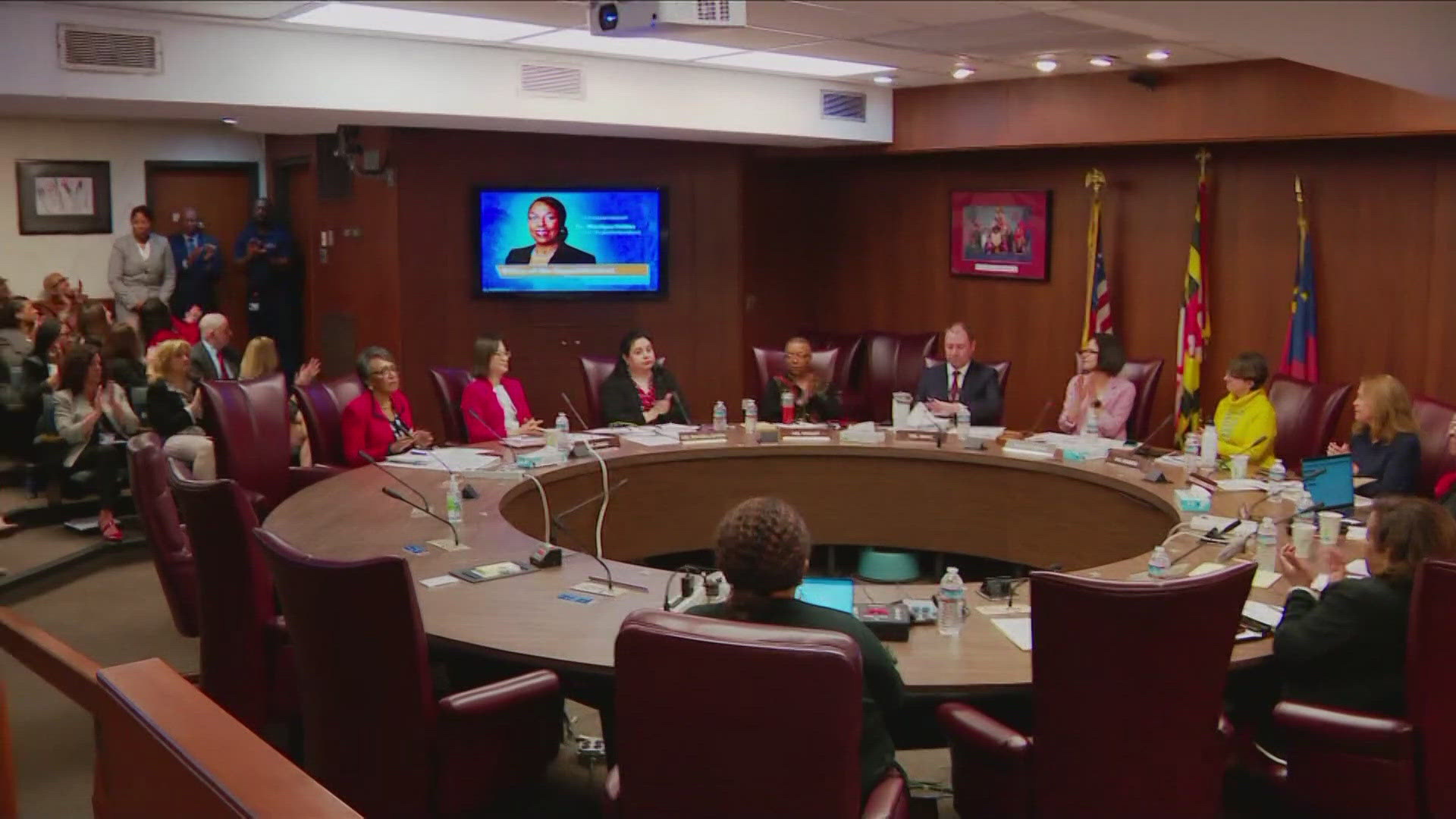![DC to remove criminal history question from job apps[ID=12661017] ID=12661017](http://download.gannett.edgesuite.net/wusa/brightcove/29906171001/201407/1102/29906171001_3675189637001_th-53c4a704e4b03d535ffa0c75-767904723001.jpg?pubId=29906171001) WASHINGTON (WUSA 9) -- "Have you ever been convicted of a crime?"
WASHINGTON (WUSA 9) -- "Have you ever been convicted of a crime?"
That is typically one of the first questions an employer asks of an applicant.
If the answer is "yes," D.C. Councilmember Tommy Wells says, "Many people are screened out right there. They don't even get to the interview."
But a new law in D.C. will prohibit employers from asking about criminal history until after an applicant is offered a job.
"At that point, you've already shown you're qualified for the job and now you get a chance to explain yourself," added Wells.
Monday, D.C. City Council unanimously voted to "ban-the-box," referring to the box on job applications asking applicants to check "yes" or "no" to whether they've ever been convicted of a crime.
Advocates for the bill stress, with 8,000 citizens going from prison back into D.C. society each year, the biggest challenge for them to re-integrate is the job market - not that there are no jobs, but that ex-cons are not considered for many because of their criminal past.
The D.C. Chamber of Commerce worked with City Council, ex-convicts and other advocates on the bill.
The chamber pushed for employers to be allowed to ask about criminal history sooner in the hiring process, after the initial interview. But council ultimately shot that down.
Though, the chamber was successful in brokering the removal of a clause that would require employers to provide a written statement to applicants detailing why they were denied employment.
D.C. Chamber of Commerce President and CEO, Harry Wingo, said that measure would have left businesses vulnerable to litigation.
"No one walked away with everything they wanted," said Wingo. This is the essence of true compromise, he added.
The agreement that was reached will ultimately benefit businesses, while helping ex-cons re-integrate into society, said Wingo.
"Human capital is critical. To have so many folks who are in the city, they've had a run in with the law but yet they're talented, they can serve businesses well," explained Wingo.
Councilmembers assured that background checks will continue to legitimately disqualify certain applicants from certain jobs, especially jobs that work with specific populations -- kids and vulnerable adults.
For example, anyone convicted of a sexual assault, child abuse or neglect will be excluded from jobs that come in contact with children.
"If it's related to the job, let's say you held up a bank and you're applying for a teller, well, then [the employer] can say, 'We're not comfortable with that, so, we're not going to hire you,'" said Wells.
Hiring is the goal and getting ex-cons back to work, can work for the city, said Wingo.
"We really need to make sure we're at full employment and prosperity reaches all parts of the city," he said.
The next step is for D.C. Mayor Vincent Gray to sign the bill.
Hawaii, Massachusetts, Rhode Island and Minnesota have ban-the-box laws in place. The Governor of Illinois is expected to sign a bill enacting the law in that state.

